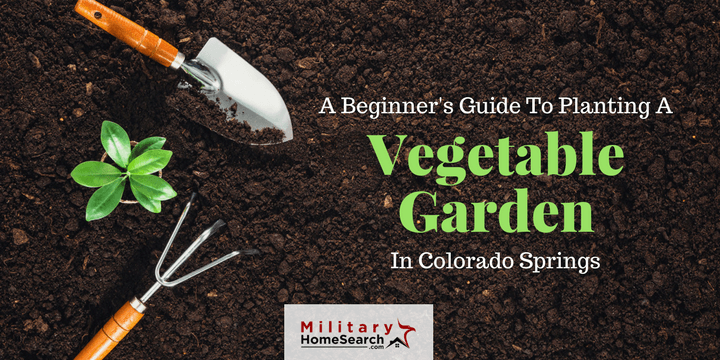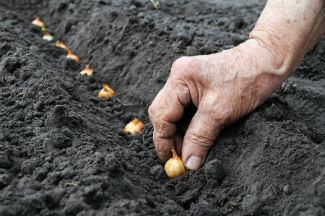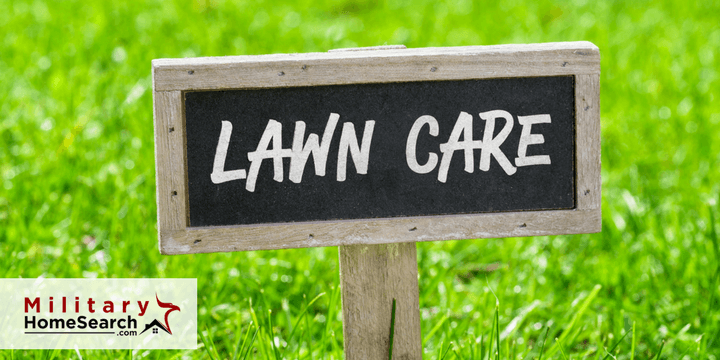A Beginner's Guide To Starting A Thriving Vegetable Garden In Colorado Springs
Posted by Lauren Schneider on Tuesday, June 4th, 2019 at 4:02pm.

Thanks to the annual amount of sunlight the city receives, Colorado Springs may seem like a great place for a garden to succeed, but it also comes with its own unique set of challenges as well. The Pikes Peak region is home to several little microclimates, all of which make gardening a totally different experience from one end of the city to the other. However, with a little bit of hard work, the right conditions, and some persistence, you can achieve the beautiful backyard vegetable garden you've been dreaming of.
If you're looking to start your very own vegetable garden in Colorado Springs, here are a few tips to help you get started:
Find The Perfect Spot
You'll want to find a spot that typically receives around 10 hours of sunlight per day. Observe your backyard for a few weeks to see where shadows are being created throughout the day and plan your garden accordingly.
Master The Science of Soil
Unfortunately, you can't really get away with using just any ol' dirt in The Springs. The area's soils are primarily heavy alkaline clay, which has done wonders for producing captivating rock monuments, but isn't so great for the garden. Because the soil is so fine, it can't aerate properly and roots can't take hold. Plus, our soils have a natural pH of 8.5, which is too alkaline for most plants.
Pay a visit to a local nursery, like Harding Nursery near Peterson AFB or Rick's Garden Center, to chat with a local garden specialist who can help you get your soil at the perfect pH level for a prosperous planter.
Be Selective With Your Vegetable Plants
You're going to see the greatest success by choosing plants that will naturally thrive in our arid climate. Here's a list of climate-approved vegetables that have been known to do well in the area:
- Lettuces
- Peppers
- Summer Squash
- Tomatoes
- Cucumbers
- Rambling sweet peas
- Half-long carrots
Some of these may need a little extra help growing accustomed to the warm, sunny days the region enjoys, so it can be a good idea to introduce them to direct sunlight in increments. Plus, keep an eye on their moisture levels to ensure they never dry out. Young plants aren't as resilient as their mature counterparts, so they require a little more time and effort in the beginning to get everything established.
Plant Seeds In Trenches
 Once you've selected your plants and have acclimatized them to your backyard, it's time to plant! Local experts suggest that it's better to create tiny trenches in your planter to retain moisture, save water and direct the flow of water to the roots.
Once you've selected your plants and have acclimatized them to your backyard, it's time to plant! Local experts suggest that it's better to create tiny trenches in your planter to retain moisture, save water and direct the flow of water to the roots.
Water Frequently
Visit your garden at least once a day to see how it's doing for water. The hot summer sun and low humidity can zap planters of their moisture quite quickly, so you will likely find yourself watering almost every day throughout the summer. Remember, you're aiming to nurture the roots, not the leaves, so as long as you can feel moisture in the soil beneath the first few inches, the plants should be happy.
Which Vegetables Grow Best in Colorado?
Colorado's high elevation can add some challenges for vegetable gardeners. By picking the right crops, gardeners here can enjoy a bountiful and varied harvest.
Greens that include kale, broccoli, spinach and lettuce all do well in Colorado's cool, wet spring weather. Sow indoors and transplant these to make the most of the season. It is also possible to get a second fall planting of hardy plants like kale and broccoli.
Root vegetables like carrots, potatoes, rutabagas and beets all thrive in Colorado soil. In areas with dense clay soil, raised beds can help. Many people also find that choosing shorter varieties of vegetables like carrots aids success.
The dry climate of Colorado is a great place to grow peppers, particularly spicy chiles. Grow a salsa garden during the hottest months with tomatoes, bell peppers and hot peppers like cayenne.
If at First You Don't Succeed, Just Keep Trying!
If your first round of gardening doesn't work out, don't fret—there are several factors that could be beyond your control. Getting your soil just right can be like tuning a high-performance engine—it just takes patience, the right tools, and dedication to get it dialed in. In just a few months, you could enjoying be fruits of your labor, literally!
If a growing your own food is important to you, let us know! We'd be happy to help you find a property with a bright, open backyard that's perfect for a small veggie garden. Send us a message or give us a call at 719.338.7294.



